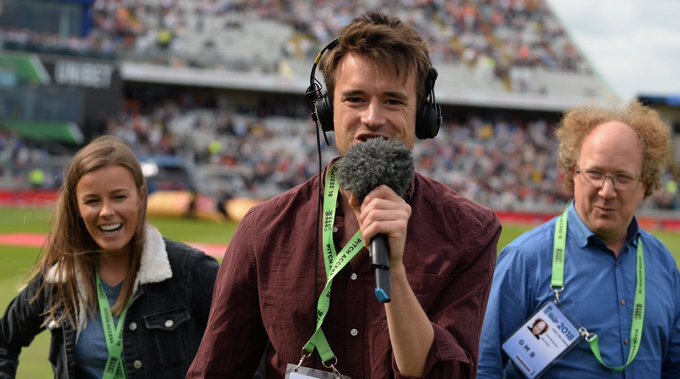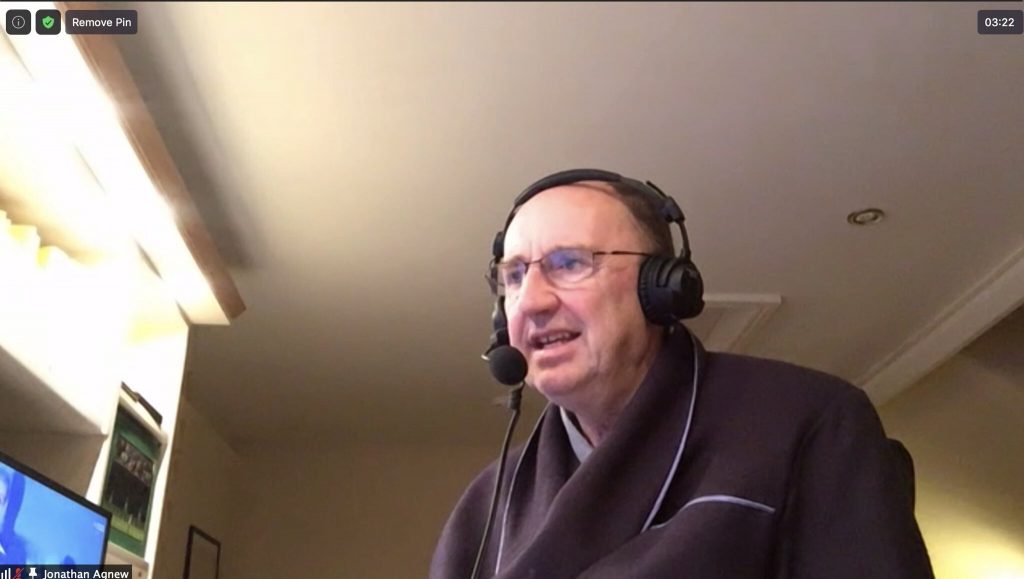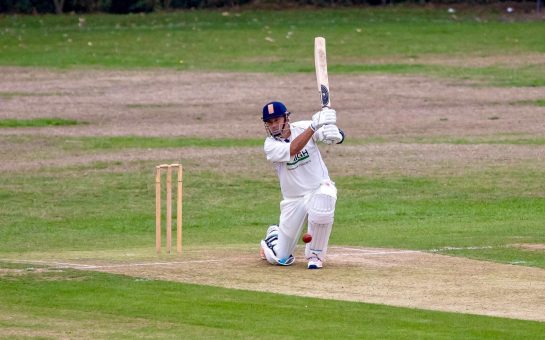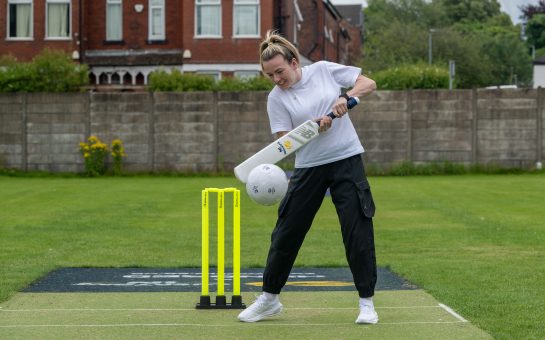BBC Test Match Special, or TMS, has become in its 64-year history the premier radio coverage of cricket matches around the world and is an integral part of the wider cricketing culture.
It began in 1957 only covering men’s Test matches but has since grown to cover men’s and women’s red and white-ball games from all over the globe.
But, in the past year, the programme has had to deal with challenges unlike it has ever faced before and Henry Moeran, one of the TMS producers, has been at the forefront of steering this cricketing juggernaut through choppy waters.
To the uninitiated, Moeran says TMS: “Is, at its core, describing the events that are happening on the field and bringing the details of the sporting event to the listener with accuracy and reliability.”
“And then alongside that, there has been, over the last 60 years, various different strands and elements to the culture around the programme which have made it something slightly bigger than just that core purpose.”
The culture of TMS encompasses its theme tune Soul Limbo, frequent mentions of pigeons and seagulls and cake sent in by listeners, all of which Moeran has to keep on top of.
“There’s a reasonably small core team of three that look after the day-to-day running of the programme to make sure that we’ve got plans in place, making sure everyone knows where they’re meant to be, and the cake deliveries go exactly as they’re meant to.”
The unpredictability of the programme comes both from the action on the field, but the conversation off it, and Moeran describes the six-and-a-half hours during which there is no script as being both exhilarating and faintly terrifying for the producers.
The programme got even more unpredictable last summer when cake deliveries were swapped for hand sanitiser and plexiglass screens.

Moeran said: “We went from summer 2019, where we had huge crowds and cricket is the centre of the sporting universe, to summer 2020, where we live in a hotel on the outskirts of Southampton for three months, getting tested every day, so you never quite know what to expect.”
But, for the TMS team, it was a no-brainer that if sport was going to return last summer, then Test Match Special had to be a part of it.
“For so many people sport is a community, a hobby, an interest, a love a distraction, that actually it fills a huge hole in so many people’s lives,” Moeran says, “and if they are unable to go to the venues, then the broadcaster should be able to be to be there and be able to bring the story of what’s going on.”
Test Match Special is often described as the soundtrack to summer and plenty of people will remember where they were when they heard TMS’s calling of a famous match.
It has taken on another role in the past year, that of a distraction from the real world.
“It offers a sort of long-form spoken word respite from a lot of the rolling 24-hour news, which can be quite challenging.”
The profoundness of which is not lost on Moeran: “What a huge privilege it is to be able to have any sort of resonance in people’s lives and to be welcomed into people’s homes.”
The challenges of broadcasting in a pandemic were increased at the beginning of this year when Sri Lanka’s travel ban stopped the media from being able to attend the two-match Test series between Sri Lanka and England men.
Further to that, the UK was in another strict lockdown limiting the movement of TMS’s contributors.
Moeran said: “Because of social distancing and the fact that travel even within the UK was advised against, we realized quite quickly we couldn’t all move to a BBC studio and do exactly the same setup, but with watching televisions, as opposed to looking out of a window.”
So, Moeran and the TMS team turned, as we all have, to Zoom.
“People spend a lot of their time speaking to loved ones from afar and using zoom and the TMS team, in many ways, is a family. So, we kind of had to do the same thing. We had to accept, we wouldn’t be able to all sit in the same commentary box, we’d have to be far apart.”
Some members of the team made it into BBC studios in London and Manchester, while Moeran, along with Phil Tufnell and Daniel Norcross, had the rather odd experience of commenting on a cricket match out in hot, humid Galle while also staring at a snow-covered pitch in a commentary box at The Oval.

BBC cricket correspondent Jonathan Agnew had perhaps the easiest gig, commentating from his attic in his dressing gown with his dogs, including a cocker spaniel named Tino, after West Indian bowler Tino Best.
“The very clever people within the BBC managed to get everyone watching the feed at the same time and then all of the audio lines coming in from everywhere and brought them to the studios in Manchester.”
Moeran says: “The day before we had a run-through and we thought “Well this seems to be okay, but we have no idea how it’s going to be,” but 4:15 in the morning on the first day, we fired up the lines and everything seemed to be okay.”
It wasn’t all smooth sailing, however, with Agnew responsible for a classic TMS moment.
“There are certain things about commentating in the way that we did that are really challenging, like, when Jonathan Agnew commentated on a replay and thought it was a wicket two balls running.
“It’s one of those things that can happen because you are at the complete mercy of the person that’s controlling the TV pictures that you’re getting.”
Another moment that resonated with the TMS audience was the interview with the father of debutant Dan Lawrence during the tea interval of the first Test.
Mark Lawrence, a groundsman at Chingford Cricket Club in Essex, gave a very touching account of how proud he was of his son, all without knowing he was live on air.
“There are certain things that that completely catch you by surprise, and Dan Lawrence’s dad’s interview was one of those because he was so wonderfully honest, and frank about the experiences of parents watching their son playing Test cricket.
“Then at the end, when he asked whether it was live or not, and you think he’s been on the radio for 15 minutes, this could have gone horribly wrong!”
Moeran believes that TMS embracing Zoom and broadcasting from afar is just another way that they are leading the charge in dealing with the complexities of modern life.
“Half of our challenge is to bring it forward into the current age and 2021. It’s a lot of fun embracing the social media side of it.”
“The commentary team has completely bought into the idea of how important it is to engage and get that immediate reaction from fans to get a sense of whether they’re enjoying the program, but also what their thoughts might be on what they’re watching.”
Away from social media, TMS has been at the forefront of improving diversity in the commentary box.
Alison Mitchell features regularly as a summariser after becoming the first female member of the permanent TMS commentary team in 2007.

Mitchell has since been joined in recent years by former professionals Isa Guha and Ebony Rainford-Brent, and West Indian all-rounder Carlos Braithwaite was a welcome addition to the team during last summer’s coverage.
Moeran says “By ensuring that the that the makeup of the team reflects the audience that we’re broadcasting to, it drags the broadcast into the current day and age just by having a greater diversity in the team to reflect the audience that might be listening.”
After we spoke, TMS brought Guha and Rainford-Brent into their Cricket Social coverage of the India/England men’s Test series when the dearth of female contributors across all coverage of the first Test was criticised.
The English summer approaches with a busy schedule for England men, the women’s schedule not yet confirmed, as well as the eventual arrival of The Hundred, which will be covered by the BBC both on radio and TV.
A new, controversial format brings new challenges for Test Match Special, but Moeran believes that the idea of the best players squaring up against each other is something we should get behind.
After the year we’ve all been through, to have got to the point where we can watch some cricket in a ground with TMS in our ears, that would be the icing on the cake.



